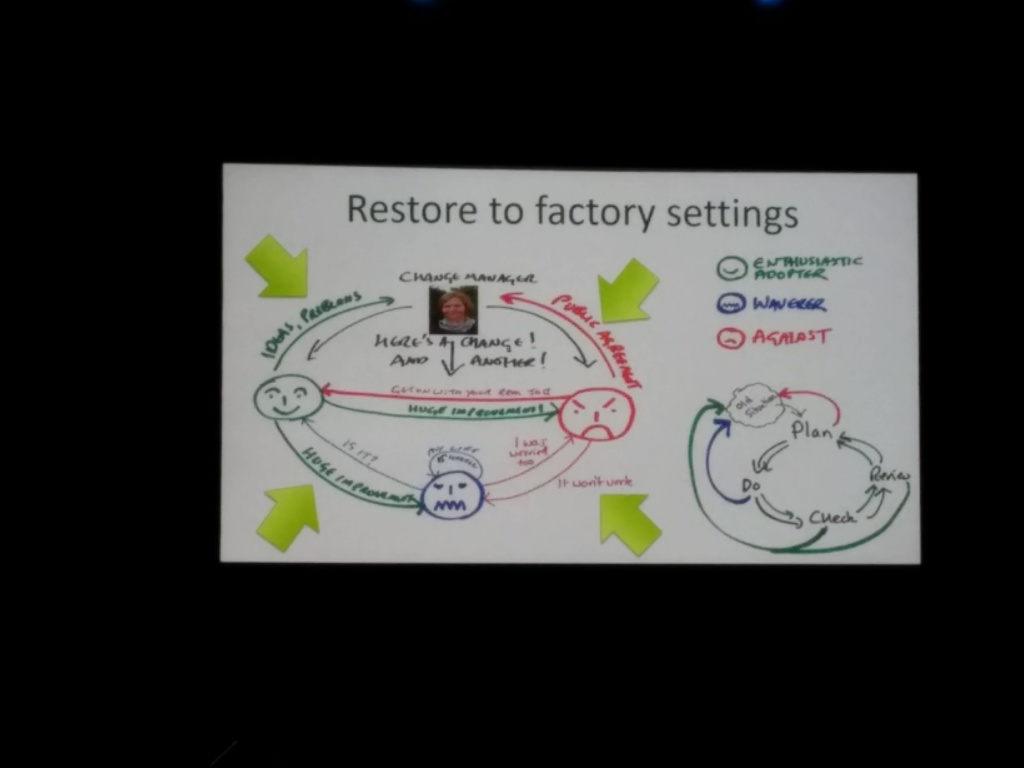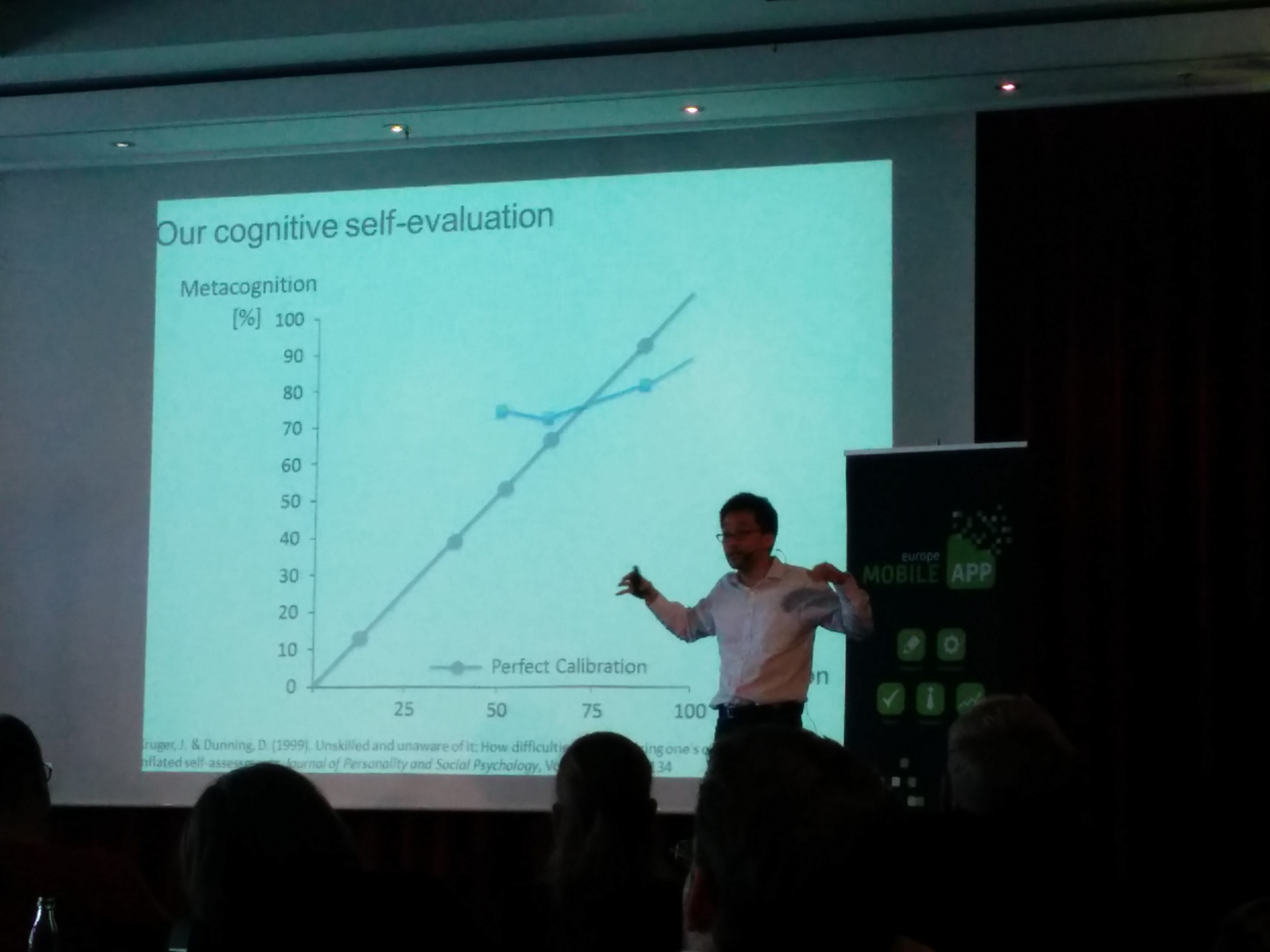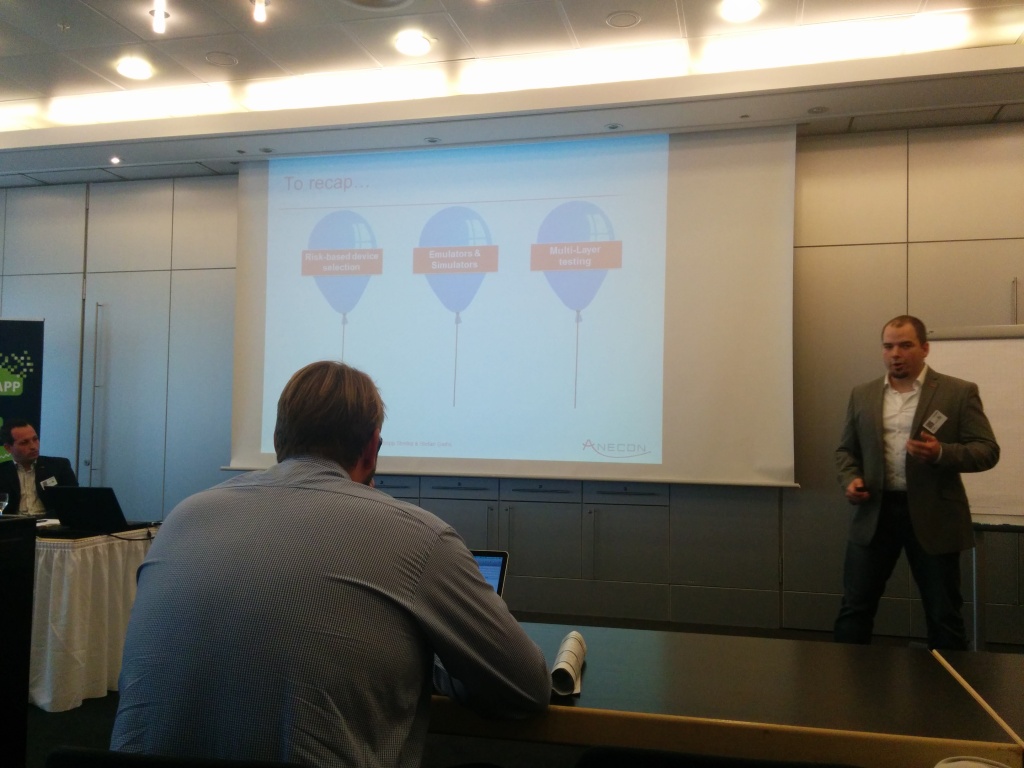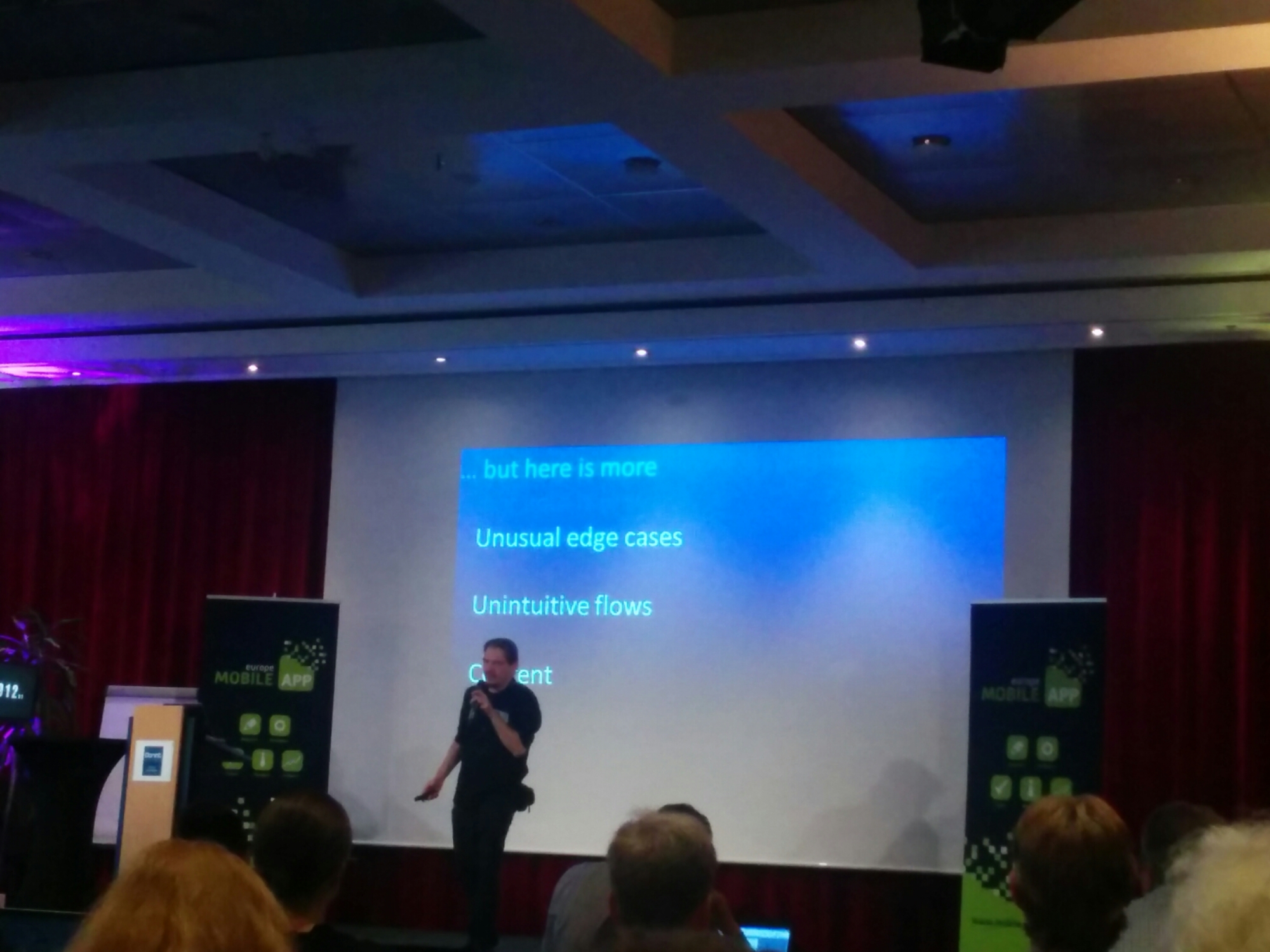In my first post about ‘A Testers Hierarchy of Needs’ I explained a little about humanistic psychology and the work of Abraham Maslow. Let’s now look at how this can be applied to software testing.
As with the first post, the headings match with the slides I presented at TestBash.
A Typical Career Path
 A typical testers career path can look like this – it’s rather rigid and set. There are similar paths to this for management roles, and often testers are pushed towards management because it pays better, even if they don’t like management.
A typical testers career path can look like this – it’s rather rigid and set. There are similar paths to this for management roles, and often testers are pushed towards management because it pays better, even if they don’t like management.
But what if we forgot about roles and job descriptions?
But what if we forgot about roles and job descriptions? After all, why do we have to consider our roles as part of a career ladder? How do we fit within our roles? What makes us satisfied as testers? What satisfies those who work for us in testing?
It’s all about considering building blocks. How do we fit the pieces together? How do we build a different kind of model to help us understand ourselves and our testers? Well I think Maslow’s work can help us out here. It can give us a framework.
A Testers Hierarchy of Needs
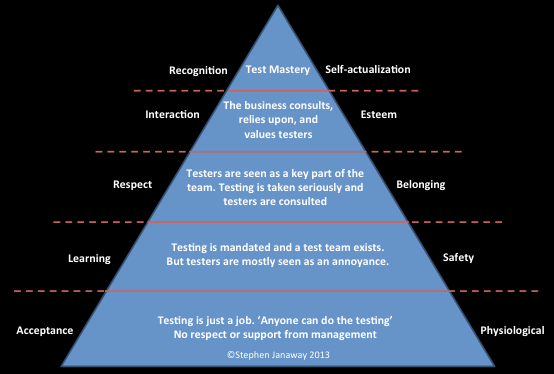
Our first level – Maslow would call this the Physiological level. I call it acceptance. Acceptance of testing. So testing is just a job. Management view is ‘anyone can do it’. You are probably complying with work rules and basic processes to continue staying in job. There’s a lack of respect or support BUT there is testing happening. It’s probably manual checking only but it’s a start. So a positive step.
The next level is Maslow’s Safety level. Testing is mandated. There is a test team. Testers have peers. There is some safety – the job is seen as worthwhile and so unlikely to suddenly be moved to somewhere where people can press the buttons and check more cheaply. But testers are still universally seen as an annoyance. It’s about meeting expectations of peers and bosses, sometimes unspoken, to meet a moral and social code. It’s a learning level. As a tester you can learn testing, the company you work for is learning about testing. You play a key part in ensuring that learning happens.
One level up and it’s all about belonging. Testing, testers and the test team is seen as a key part of the company. It is taken seriously by all. It’s about meeting and exceeding more demanding expectations of peers and bosses, sometimes unspoken, to meet moral and social code. Consultation. Respect. Inclusion.
The Interaction level is next. The impact of testing reaches further than just the IT team. Consultation from the business. Reliance. Interaction. And overall a real sense of Esteem for the tester. A sense of worth. You are really adding value.
Then the top. Maslow’s self-actualisation level. Test Mastery.
• The skills and continual learning needed to succeed.
• Coaching others up the hierarchy.
• A responsibility to the wider testing community.
• The person must not only achieve the previous needs, but master them.
Recognition from all. Inside a company and outside. Respect and recognition from peers, thought leaders, and those that you really respect and value.
What affects your movement between levels?
Maslow never drew the theory of needs as a pyramid. In fact he never drew it as a diagram at all as far as I know. That was done in a later psychology text book. He felt that there could be overlap between states. You can move between states. Down as well as up. Changing roles, changing teams, life changes, can all affect movement between levels. Where you are on the hierarchy is just a snapshot in time.
I feel that, for a testers theory of needs, a pyramid is right. It shows the hierarchy best. But it could be a set of overlapping balloons, if you like that sort of thing.
So….where do you think you are on the pyramid?
Are you on a path to self-actualization. To Test Mastery? Do you think you are there already? What are you doing to stay there? What about the testers who are in your team? What about the company you work for?
I’d be very interested to know what you think.
